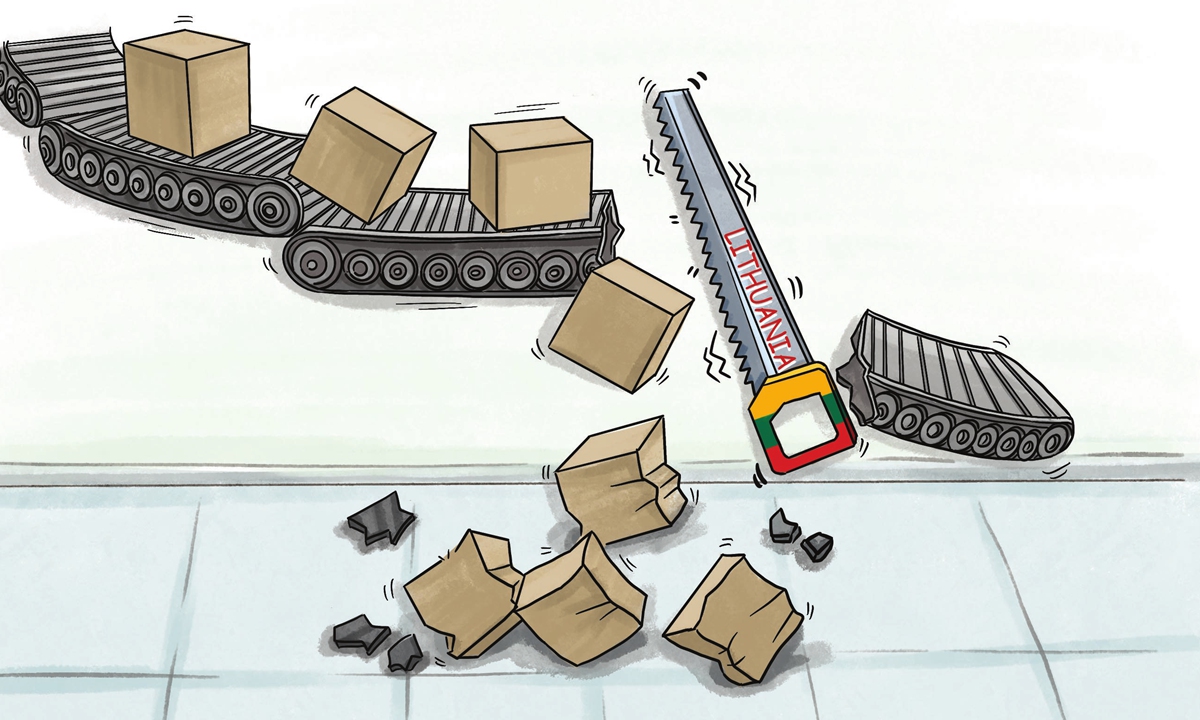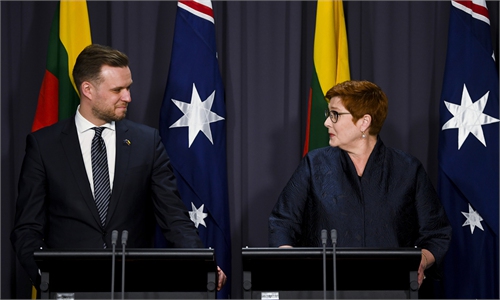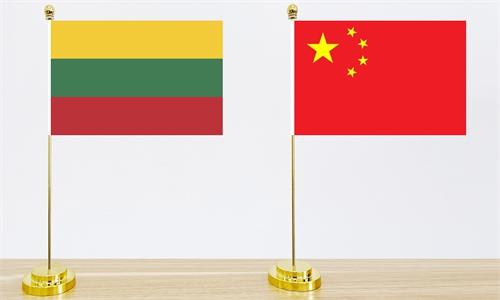
Illustration: Xia Qing/GT
Showing no sign of redressing its ill-advised approach on violating the one-China principle, Lithuania proposed an aid package to provide access to financing for companies hit by so-called "China's trade restrictions." The proposal was approved by the European Commission on Tuesday, according to media reports.
The aid plan, which worth 130 million euros ($138 million), is "necessary, appropriate and proportionate" to support companies affected by the exceptional circumstances "resulting from the Chinese trade restrictions," the Commission said, according to Politico.
Though some US and EU politicians have been echoing Vilnius' "economic coercion from China" story, it is still a pity to see the EU Commission bluntly turning the facts upside down and attempting to shift the blame onto China.
From the outset, China has made its stance clear that it would determinately defend its core sovereign interests. Yet, Lithuania persistently chose to go down the wrong path regarding the Taiwan question, while completely ignoring China's dissuasion and opposition.
The Taiwan question concerns China's core interests and is non-negotiable. It is the Lithuanian government that has single-handedly wrecked its relations with China, putting its firms under rapidly accelerated political risks. The ins and outs of the fraught China-Lithuania relations cannot be more straight and clear.
China has responded properly in defense of its legitimate rights and interests and international justice, which is completely legitimate and lawful. As for the baseless "economic coercion" accusation, China's Foreign Ministry has repeatedly stressed that the accusation is baseless and that China always follows WTO rules. It is very important to point out that China, despite voicing firm opposition to Lithuania's provocative moves, has not imposed any trade sanctions or restrictions against Lithuania, as claimed by some Lithuanian and EU officials.
China is the largest trading partner of over 120 countries and regions, including the US and the EU. It is not a position that can be built on "coercion." In fact, China always seeks positive and mutually beneficial economic and trade cooperation with others. Mutual respect is a premise of any smooth cooperation.
As for the "exceptional circumstances" that are affecting Lithuanian firms, it is resulting from Vilnius' dangerous provocations toward China, not the "Chinese trade restrictions." The EU, as a major power and economy across the world, should keep a clear head and refrain from risking China-EU relations and cooperation over Vilnius' execrable political stunt. China-EU ties are already facing growing difficulties on various issues, and bringing more points of friction based on nothing is not in the interest of either side.
Against the backdrop of the sluggish global economy and the increasingly complex geopolitical landscape, stable and constructive ties between China and the EU are now crucial more than ever for both sides, as well as the international community. There may be forces in and out of the EU that are constantly seeking to undermine China-EU ties, including anti-China forces in some EU countries, but it is hoped that the EU can recognize the massive shared interests with China and pursue constructive dialogue with China, instead of political attacks and accusations.
As for Lithuania, its political leaders must understand the dire consequences of challenging China's sovereignty and realize that seeking external aid will only help its suffering businesses temporarily and is in no way a sound path for its long-term economic development. If it continues on the current provocative approach, its businesses will suffer even more - not because of China's "restrictions" or "coercion," but because of the political risks created by Vilnius.
The author is an editor with the Global Times. bizopinion@globaltimes.com.cn


